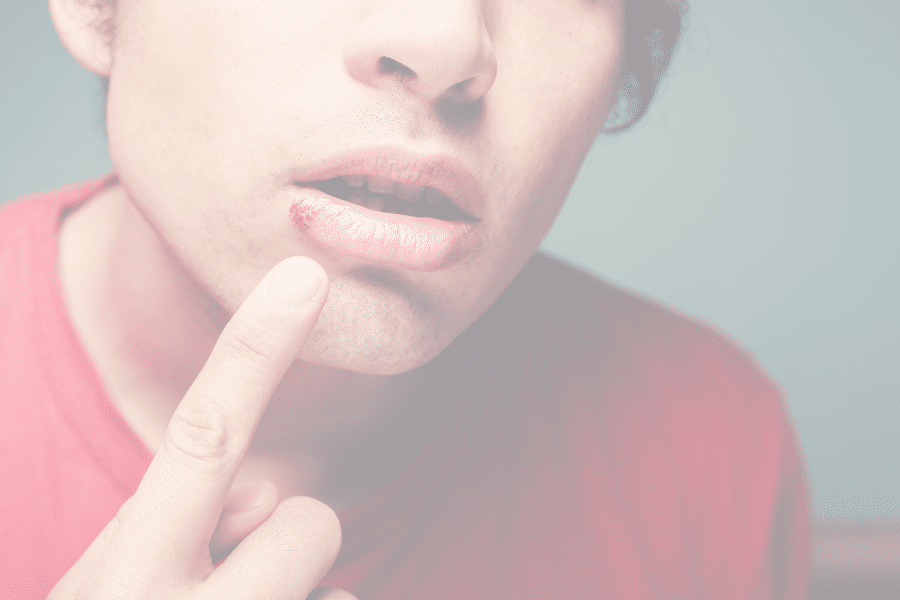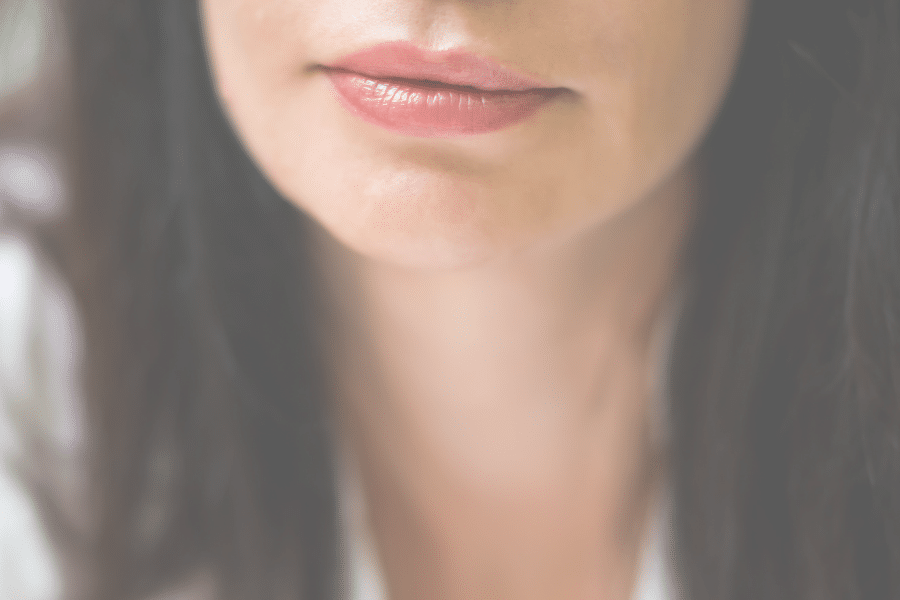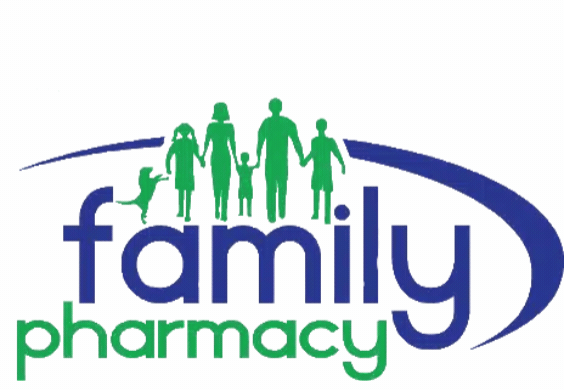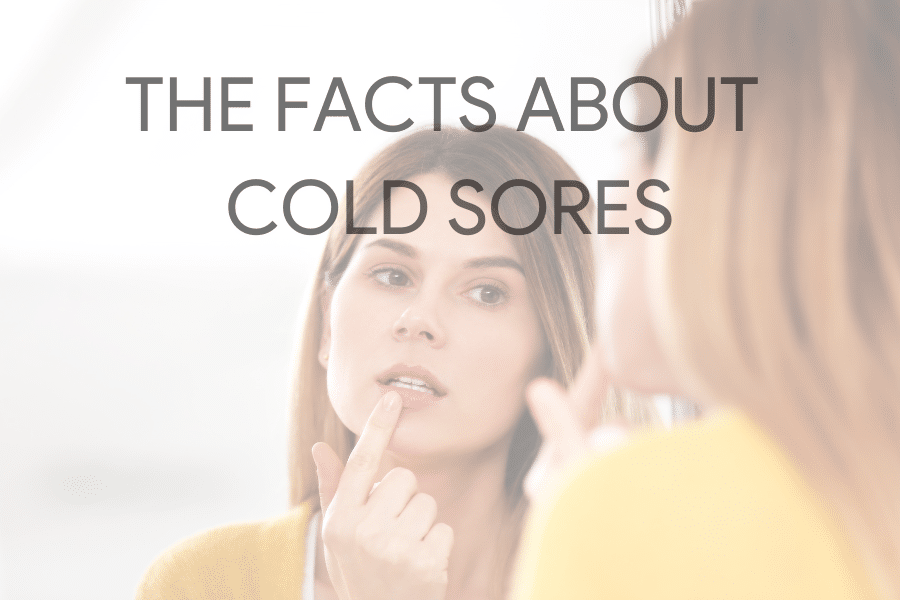When it comes to the topic of cold sores, a lot of things come to everyone’s mind. With so much stigma and misinformation out there, it’s important to separate fact from fiction. Everyone should know the facts about cold sores, prevention and treatment.
Clearing up the falsehoods and negative thoughts surrounding cold sores can help those who suffer with them better understand their options for treatment. It may also get rid of the stigma around getting cold sores.
Learn your options for all treatments available if you suffer from cold sores and possibly avoid getting them in the future with the help of Utah Family Pharmacy preventative treatments and cold sore prescription treatments.
What is a Cold Sore?

Usually described as small, fluid filled blisters that show around the lip, or mouth area. Cold sores aren’t the best thing to look at, though potentially pretty harmless.
Cold sores are incredibly common and infect nearly four billion people worldwide.
When people get cold sores, it’s from the virus attacking and overtaking those healthy cells.
It’s important to know that the cold sore virus is very contagious and that once infected, there’s no cure for the virus to leave your body.
Caused by the herpes simplex virus (HSV-1). Cold sores can be recurring and sometimes many won’t even show symptoms. It’s possible to have contracted the virus and not show any symptoms until it becomes active.
That means cold sore outbreaks begin to develop.
With several possible triggers to an outbreak, some of the most common are:
- Common Colds
- Flu/Fever
- Stress
- Fatigue
- Sun/Wind Exposure
Some people, however, may carry the virus without ever showing symptoms – in other words, they never have a cold sore – and so may pass the virus on to others unknowingly.
Signs of a Cold Sore

Sometimes starting as a tingling, itching, or burning feeling on the lip area, a cold sore can then turn into an inflamed/red spot on the skin. From which a blister will usually form.
It’s then bound to come open and xpel clear liquid, then eventually dry out and scab.
Like any wound, it will heal eventually and the affected area will slowly go back to normal. But the virus itself won’t go away.
Most people get cold sores on their lips, but it is possible to get cold sores on your nose, your eyes and your genitals as well.
When people get cold sores, they often confuse them with having a canker sore. This is incorrect, as canker sores can only happen inside the mouth. In places such as:
- Your Gums
- Inner Lips
- Tongue
Cold sores are the ones that can only appear on the outer edges of the lips, or on the lips themselves.
How Are Cold Sores Spread?

The cold sore (HSV-1) virus can be spread and infect others through touch. Most commonly by kissing. The virus is easily passed through saliva and direct lip contact.
The virus may also be contracted by sharing items touched by saliva of the infected person. Such as:
- Eating Utensils
- Cosmetic Tools
- Sharing Drinks
- Sharing Lip Products
It’s important to stay cautious as some infected may not be aware without showing symptoms.
Are they Contagious?
YES, cold sores are highly contagious. As direct contact through something as kissing causes most infection, it can easily be transferred other ways.
You can become infected with the cold sore virus through touching alone. Even touching your fingers to your mouth, or eyes, after touching someone with the virus can expose you.
The cold sore virus does not however pass through the air, but has been proven to survive on hard surfaces and risk infection to others.
To prevent contraction from another person, it’s important to practice methods to protect yourself:
- Follow correct hand-washing. Wash with soap and water for at least 20 seconds and use hand sanitizer when needed.
- Avoid close contact with the infected. Those with visible signs of the virus shouldn’t touch others personally and never touch your mouth, eyes, or nose around them.
Doing these small practices can help protect you from contracting the virus, or passing it on to others.
Preventing the Spread
In most cases, cold sores heal by themselves within 10 to 14 days. However, by using prescription cream you can reduce your recovery time substantially.
Until all cold sores have healed over, patients should follow these precautions:
- Do not kiss people, especially children.
- Avoid other intimate contact.
- Avoid close contact with anyone who has a weakened immune system, including newborn babies.
- Do not share lip balm, towels, razors, or other similar personal items.
- Do not share beverages or food.
- Try not to touch your cold sores.
- If you touch a cold sore or apply medicine to it, wash your hands immediately afterward.
- Wash your hands frequently throughout the day.
Treating Cold Sores

When it comes to the treatment of cold sores, there’s a lot of information out there. It’s crucial to separate the facts from the myths and find the right treatment for you.
You’ll hear things from home remedies, to overnight cures. Picking the best treatment option and shortening your recovery time will allow your cold sore to heal quickly and effectively.
Cold sores will usually and eventually clear up on their own after about a two to four week period. If you’d like to speed up the healing process, there are several types of prescription antiviral medications available.
Cold sores are caused by a virus, so antiviral medications are used to treat them. Your pharmacist may prescribe medication.
There are pill forms, or creams to be applied several times daily. Pills have usually been found to have higher success rates.
Some examples of antiviral medications used are:
- Acyclovir (Zovirax)
- Valacyclovir (Valtrex)
- Famciclovir
- Penciclovir (Denavir)
For more severe infections, there are some antiviral drugs that can be given through an injection.
Lifestyle and Home Remedies
To ease the discomfort at home that comes with a cold sore:
- Try other cold sore remedies. Some over-the-counter preparations contain a drying agent, such as alcohol, that may speed healing.
- Use lip balms and cream. Protect your lips from the sun with a zinc oxide cream or lip balm with sunblock. If your lips become dry, apply a moisturizing cream.
- Apply a compress. A cold, damp cloth may reduce redness, help remove crusting and promote healing. Or try a warm compress to the blisters to ease pain.
- Rest and try pain relievers. Take over-the-counter pain relievers if you have a fever or the cold sore is painful. Creams with lidocaine or benzocaine may offer some pain relief.
Treatment with Utah Family Pharmacy
If you suffer from recurring cold sores, Utah Family Pharmacy offers Prevention and Treatment for Cold Sores.
Pharmacists are a great source of information for patients struggling with cold sores. Patients who suffer from them frequently rely on pharmacists for treatment and advice on OTC medications, or prescription cold sore treatment/prevention.
Patients who experience symptoms of cold sores such as the: tingling, pain, blisters, etc. know what those signs mean and should contact their pharmacy right away for treatment,
Such as: OTC, prescription medications, antiviral agents, or other preventative treatments. They should be started as soon as possible, or when symptoms begin for the best outcome of effectiveness.
If you suffer from recurring cold sores, Utah Family Pharmacy offers Prevention and Treatment for Cold Sores.
Pharmacists are a great source of information for patients struggling with cold sores. Patients who suffer from them frequently rely on pharmacists for treatment and advice on OTC medications, or prescription cold sore treatment/prevention.
Patients who experience symptoms of cold sores such as the: tingling, pain, blisters, etc. know what those signs mean and should contact their pharmacy right away for treatment,
Such as: OTC, prescription medications, antiviral agents, or other preventative treatments. They should be started as soon as possible, or when symptoms begin for the best outcome of effectiveness.
- Creams to ease pain and irritation.
- Antiviral creams to speed up healing time.
- Cold sore patches to protect the skin while it heals.
Receive Cold Sore Treatment Today
At Utah Family Pharmacy, we provide not only treatment for cold sores, but also prevention. Preventing the spread of the virus will slow the volume of cold sore outbreaks and reduce the risk of infecting others.
Educating yourself on the causes, contagion level and proper treatment is important! That’s why we want to help. If you are experiencing the symptoms of a cold sore, it is important that you take the proper precautions to avoid spreading the virus to others, or to other parts of your body.
Contact one of our three locations today and receive preventative medication and treatment for those suffering from the cold sore virus. Ask your pharmacist now about the best treatment option for you.


Recent Comments